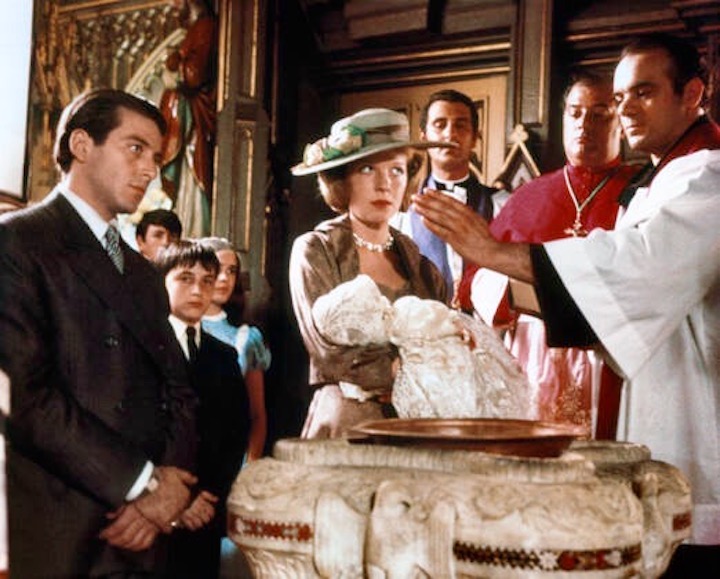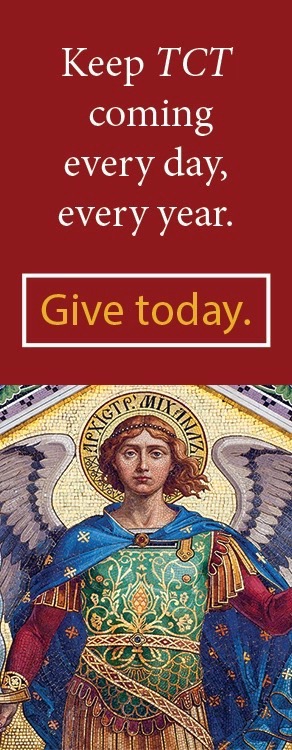Decades ago, American conservatives used to say that liberalism was “creeping socialism.” It wasn’t true at the time – although it may well be true of today’s liberalism, a very different and far more leftist kind of animal than the liberalism of the old days.
From the late 1940s until the early 1970s, due to the Cold War and the need to resist Communism, moderate leftism (aka liberalism) protected itself from extreme leftism by erecting and maintaining a “wall of separation” from the latter. As more and more liberals began turning against the Vietnam War in the late 1960s, however, the New Left was increasingly welcomed into the Democratic Party.
After all (the thinking went), the New Left had been correct about the Vietnam War, which they opposed from the beginning. If they were right about that, maybe they are right about many other things.
Down came the wall of separation. And so began the new Democratic Party, a party that has largely abandoned the old liberalism of FDR, Truman, JFK, and LBJ in order to embrace a new and improved liberalism of sexual freedom, abortion, recreational drugs, and transgenderism. This new liberalism is motivated by a spirit of Diversity, Equity, and Inclusion – (DEI) and it holds that America is, and always has been, a “systemically racist” country.
As a Democrat of the old dispensation, I regret this change. I still like liberals of the FDR kind. But I am a political dinosaur living in an age that is planning travel to Mars.
If I no longer have my lovely old political party, at least I still have my lovely old religion, don’t I? That must a great consolation.
Well, not much. Many high-ranking figures in my Church, including more than a few cardinals, bishops, and theologians, seem bent on “improving” Catholicism in the 21st century in much the way that hordes of mainline Protestants “improved” Protestantism during the 20th century. They improved it by opening their doors and windows to anti-Christian winds of atheistic doctrine and sexual freedom (a thing of atheistic provenance).
By now these winds – these doctrinal hurricanes – have largely blown the Protestant house down. To be sure, the conservative (or Evangelical) Protestant house is still standing, but the old mainline house, which prided itself on being modern and up-to-date, is a nearly total wreck. In its more advanced sectors, liberal Protestantism today is barely distinguishable from full-fledged atheism.
With the cautionary example of liberal Protestantism staring us in the face, why would any Catholic – except for the very stupid, who learn nothing from history – want our religion to go down the road to perdition that liberal Protestants have already traveled? Not all of our liberal Catholics are stupid. Many of them are very smart – too smart, perhaps, for their own good. Or for the good of the rest of us.
I haven’t been paying much attention to the process leading up to the Synod on Synodality. Perhaps because “Synod on Synodality” is too much of a tongue-twister for me. But from time to time I hear echoes.

I hear that many people in our Church – which never used to be a democracy but is now becoming a democracy – feel that we must “listen” to Catholics who feel excluded – e.g., people in a non-sacramental marriage, gays, lesbians, pro-abortion apologists, transmen, transwomen, and non-binary people.
I am told that orthodox Catholicism and the people who believe in Catholic orthodoxy are hurting the feelings of these “excluded” people and by doing so are blocking their path toward eternal salvation.
Until I wrote the essay you are now reading, I had absolutely nothing to do with the synodality process. But now I’d like to add my two cents.
If the Church is getting ready to be nice to a variety of sexual sinners, shouldn’t we also be nice to members of the Mafia and other criminal gangs. I have spent much of my life in or near Providence, Rhode Island, which for a long time was the capital city of the Mafia in New England. And so, even though I have not personally rubbed shoulders with Mafia members, I have often rubbed shoulders with persons who themselves rubbed shoulders with Mafiosi.
And so I feel I can speak on behalf of the men of the Mafia, almost all of whom were baptized Catholic and would like to go to Heaven after death and are quite willing to spend a certain amount of deserved time in purgatory.
“We too feel pain,” they may say. “It hurts our feelings to hear that the Church condemns such sins as murder, drug-dealing, extortion, bribe-giving, etc. After all, we only murder criminals who deserve to be killed; we only sell drugs to persons who, if they don’t get the drugs from us, would get them elsewhere.” And so on. “Have a heart,” they plead.
And while the synodality process is lending a charitable ear to the cries of gangsters, shouldn’t it do the same for prostitutes (whom today we must call, with respect, “sex workers”)? “We perform a valuable public service,” they say. “By making ourselves available to a certain kind of man, we obviate his need to seduce virgins and married women. Technically, we concede, that’s a sin, but a sin that produces good results for society. A felix culpa, so to speak.”
The problem with our Catholic progressives is that they don’t really believe what they profess to believe. They don’t really believe that the Church and its teachings were founded by Jesus Christ, the one and only God-man.
Instead, they believe that while Jesus might have been a wise man for his day, and laid the foundations of the Catholic religion, the superstructure of the building will have to be brought to perfection by people like us, truly modern thinkers who understand human nature and its needs far better than any ancient Palestinian sage could have done.
And if you doubt that, it just shows you’re rigid, and part of the problem.
You may also enjoy some of our most popular columns from the last dozen years:
Randall Smith’s A Traditional Catholic Wife?
Fr. Thomas G. Weinandy’s Pope Francis and Schism
















